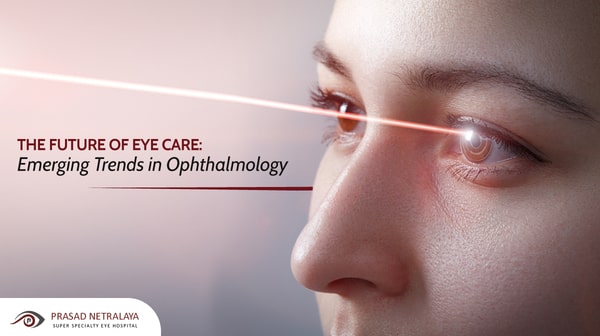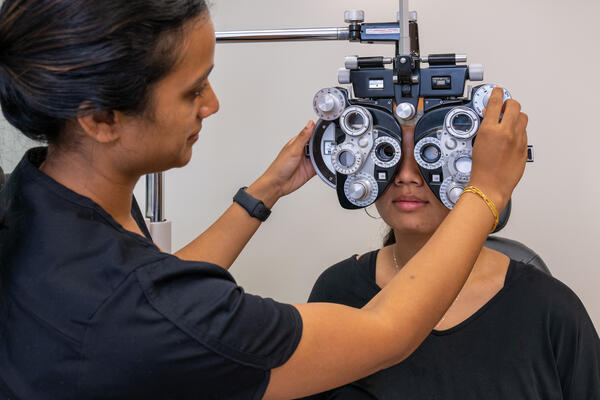Andalusia Pediatrics: Exceptional Take care of Children's Health Requirements
Andalusia Pediatrics: Exceptional Take care of Children's Health Requirements
Blog Article
Is Refractive Surgery Right for You? Elements to Take Into Consideration for Better Eyecare
In the world of eye care, the decision to go through refractive surgical procedure is a significant one that requires thoughtful factor to consider. As people seek clearness and flexibility from the restraints of corrective lenses, various aspects enter play when determining the suitability of such a treatment. From the details of one's eye health to the ins and outs of personal expectations and everyday routines, each element holds value in the broader landscape of refractive surgery candidacy. By examining these crucial elements with care and accuracy, a clearer path towards notified decision-making emerges.
Eye Health And Wellness Analysis
When taking into consideration refractive surgical procedure, a detailed eye health and wellness examination is important to evaluate the viability of the procedure for each person. andalusia pediatrics. This analysis includes a series of tests and examinations conducted by an eye treatment expert to determine the overall health of the eyes, the existence of any hidden conditions, and the security of the refractive error
During the evaluation, numerous elements are taken right into account, such as the individual's case history, current eye prescription, corneal density, pupil size, and tear movie quality. These evaluations aid to identify any type of contraindications to refractive surgery, such as corneal irregularities, cataracts, or without treatment eye infections. In addition, the assessment aids to take care of individual assumptions relating to the possible outcomes of the surgical procedure based on their special eye qualities.
Inevitably, the eye health assessment is necessary in making certain the safety and security and effectiveness of refractive surgical treatment, as it supplies beneficial understandings into the person's eye health status and helps identify the most appropriate therapy choices for accomplishing ideal aesthetic end results. (cardiologist andalusia)
Lifestyle Assessment
An extensive way of life assessment is essential in figuring out the suitability of refractive surgical treatment for an individual's visual correction needs. Way of living elements such as profession, hobbies, and daily tasks play a crucial duty in the decision-making procedure regarding refractive surgery. Individuals with professions that entail a high degree of physical activity or direct exposure to environmental elements might have different aesthetic needs contrasted to those with sedentary workdesk work. Understanding just how an individual's lifestyle might affect their vision post-surgery is crucial for handling expectations and ensuring ideal end results.
In addition, lifestyle routines such as sports involvement, exterior activities, or also skin care routines can influence the recovery procedure and overall success of refractive surgical treatment. For instance, individuals that take part in contact sports might require to take extra safety measures to shield their eyes during the recovery period. In addition, people with considerable sunlight direct exposure may require additional post-operative like protect against complications. By conducting an extensive way of life evaluation, eye treatment specialists can tailor their suggestions and therapy strategies to satisfy the special requirements of each person, inevitably leading to boosted aesthetic end results and satisfaction.
Assumption Positioning

Clients require to understand that while several individuals accomplish 20/20 vision or better adhering to refractive surgical treatment, some might still require glasses for particular activities like analysis or driving at evening. Managing these expectations aids avoid dissatisfaction and dissatisfaction post-surgery, leading to a much more favorable overall experience for the individual.
Risk Evaluation

Factors that may boost the risk of issues consist of age, specific clinical conditions like autoimmune illness, unstable vision prescription, thin corneas, and impractical patient expectations. Additionally, choosing a knowledgeable and competent doctor, following pre and post-operative care directions faithfully, and divulging any type of pertinent clinical history can assist alleviate threats.
To minimize the possibility of complications, eye doctors perform comprehensive pre-operative examinations to recognize any kind of contraindications to surgery. They also talk about the prospective threats and advantages with individuals throughout the consultation process. By engaging in open communication and shared decision-making, both the client and the eye doctor can work together to identify if refractive surgical treatment is the ideal option based upon private danger profiles and preferred end results.
Appointment Relevance
Taking into consideration the critical role of educated decision-making in analyzing threats and possible difficulties in refractive surgical procedure, the examination procedure holds considerable significance in guiding patients in the direction of optimum end results. Throughout the consultation, the eye doctor assesses the client's eye health, refractive mistakes, and general suitability for surgery. This preliminary assessment is crucial in determining one of the most appropriate procedure for each and every person, taking into consideration variables such as corneal density, pupil dimension, and existing eye conditions.
Moreover, the appointment works as an opportunity for people to review their expectations, concerns, and any type of questions they might have concerning the surgery. Clear interaction in between the surgeon and the patient is important to ensure practical expectations and a comprehensive understanding of the possible dangers and benefits included.
Additionally, the examination allows the specialist to explain the different medical options readily available, their respective results, and the post-operative treatment required. This detailed discussion equips people to make well-informed decisions regarding their eye treatment, leading to far better satisfaction and results post-surgery.
Verdict
To conclude, people considering refractive surgical procedure should go through a detailed eye find wellness evaluation, evaluate their way of living habits, align their assumptions with potential results, examine the affiliated threats, and focus on consultations with eye care professionals. These elements play an essential duty in establishing the viability of refractive surgical procedure for each person, ensuring optimal outcomes and satisfaction with the procedure.
People considering refractive surgery often have high expectations pertaining to the end results, anticipating best vision without the requirement for glasses or contact lenses. While refractive surgical treatment can significantly improve vision and reduce dependence on aesthetic aids, it is essential for patients to understand that results may differ based on specific aspects such as the degree of refractive error, corneal density, and general eye health.
By involving in open interaction and shared decision-making, both the eye doctor and the individual can work with each other to figure out if refractive surgical treatment is the right selection based on private threat accounts and desired end results.
Thinking about the crucial duty of notified decision-making in evaluating threats and prospective complications in refractive surgical procedure, the examination process holds substantial significance in assisting clients in the direction of ideal end results. During the consultation, the eye doctor evaluates the individual's eye health, refractive mistakes, and overall suitability for surgery.
Report this page